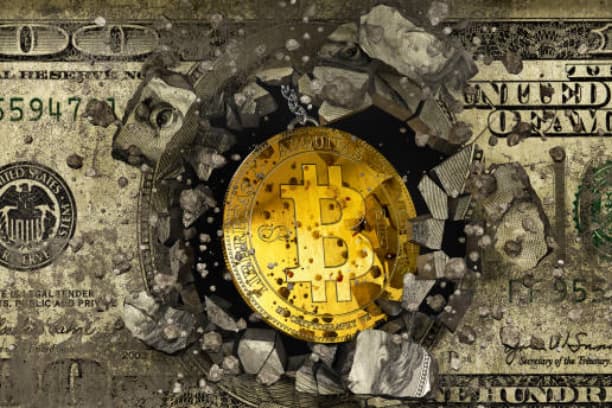What is the difference between Bitcoin and Ether? Which one is more promising?
In the world of cryptocurrency, Bitcoin and Ethereum are two of the most iconic blockchain platforms that not only hold a leading position in the marketplace, but also represent different technological and application prospects. This article will help you gain a deeper understanding of the key differences between Bitcoin and Ethereum, and explore which platform has the greater potential for the future of cryptocurrency. Whether you are a cryptocurrency beginner or an experienced investor, this analysis will provide you with valuable insights.

The Basic Difference Between Bitcoin and Ethereum
Although both Bitcoin and Ether are leaders in the field of cryptocurrency, they are designed with very different philosophies and uses in mind. Bitcoin, as the world's first cryptocurrency, primarily functions as a digital currency that allows users to conduct decentralized transactions and store value. In contrast, Ether is more than just a cryptocurrency; it is more of a blockchain platform that allows developers to build decentralized applications (DApps) and smart contracts, and has further fueled the rise of DeFi (decentralized finance) and NFT (non-homogenized tokens).
As a result, Bitcoin is positioned more towards digital gold, while Ether is a more diverse blockchain platform with a richer application landscape. This is why they each attract different types of users and investors.
Strengths and Challenges of Bitcoin
Bitcoin's strength lies in its simple and stable design, which is designed to be a decentralized payment system as well as a store of value. Bitcoin's limited issuance makes it attractive as an anti-inflationary and value-storage tool. To date, Bitcoin has been widely recognized as "digital gold" and has become the preferred choice of institutional investors.
The challenge of Bitcoin should not be overlooked. Due to its slow transaction processing speed, it can only process about seven transactions per second, which is relatively inefficient compared to traditional payment systems. In addition, the energy consumption of Bitcoin has been controversial, especially in the "mining" process, which consumes a lot of electricity, which has led to criticism from some environmental groups.
Strengths and Challenges of Ethernet
The highlight of Ether is its ability to support smart contracts. Smart contracts allow developers to build complex applications on the Ether blockchain, making Ether an infrastructure for innovative areas such as decentralized finance (DeFi) and non-identical tokens (NFT). Ether's blockchain is more flexible than Bitcoin and can support a variety of innovative application scenarios.
There are challenges with Ethernet as well. Ether's transaction fees (i.e., "Gas Fees") are often high, especially when the network is busy, and the rising transaction costs make for a poor user experience. While the Ether 2.0 upgrade, which moves to a Proof of Stake mechanism, is designed to address these issues, the current technical hurdles and network congestion remain the main challenges facing Ether.

Which one is more promising?
The question of which is more promising, Bitcoin or Ether, is a major concern for many investors. Bitcoin is still the preferred choice for investors who want to preserve the value of their funds or hedge their bets, as it is positioned as digital gold and offers a more stable store of value. Bitcoin's market size is huge and it has been accepted by many large organizations, so its position seems unassailable in the short term.
The potential of Ethernet in the future is even more diverse, especially in the innovative applications of blockchain technology. With the gradual realization of Ether 2.0, its improvement in transaction speed and cost will greatly enhance user experience and further promote the development of DeFi, NFT and other fields. Therefore, if you are concerned about the long-term innovation and application landing of blockchain technology, the prospect of Ether may be more attractive.
Bitcoin or Ether? Key Factors in Choosing
For investors, the choice between Bitcoin and Ether is based on a number of factors. An investor's risk tolerance and investment objectives will affect the choice. If you are looking for steady growth and value preservation over the long term, Bitcoin may be the better choice, while if you are more interested in innovative applications of blockchain technology and are willing to take on a certain amount of risk, Ether may be more attractive.
Understanding cryptocurrency market dynamics and technological developments can also help you make more informed decisions. Both Bitcoin and Ether are constantly evolving, so it's important to be aware of the latest technological updates and market reactions before making investment decisions.
Frequently Asked Questions Q&A
Q1: What is the difference in transaction speed between Bitcoin and Ether?
The number of transactions per second for Bitcoin is about 7, while Ether's transaction processing speed is typically faster, at about 30 transactions per second, which gives Ether an advantage in high-frequency transactions and decentralized applications.
Q2: What problems will be solved by the Ethernet 2.0 upgrade?
The Ethernet 2.0 upgrade will introduce the Proof of Stake (PoS) consensus mechanism, which not only significantly reduces energy consumption, but also increases transaction processing speeds, reduces Gas fees, and improves network scalability and efficiency.
Q3: Which cryptocurrency is more suitable for long-term investment?
If you prefer a lower-risk long-term investment, Bitcoin may be a better choice. It's already widely accepted as digital gold and has a stable market capitalization. If you're willing to take a risk and want to capitalize on the potential of blockchain technology innovation, then Ether is an option to keep an eye on.














